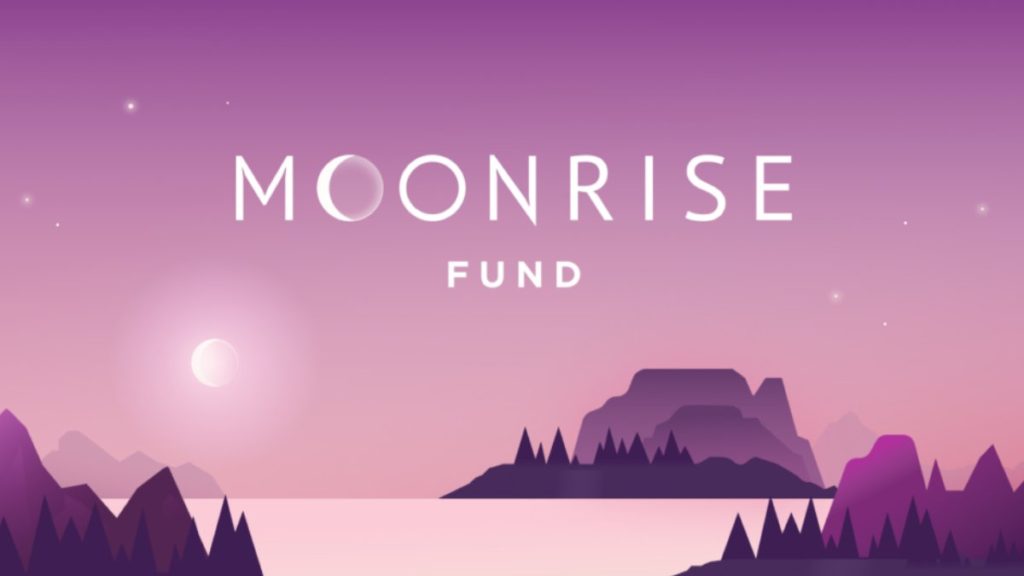
How Evva Karr and Glitch are Looking to Change the Way Games are Made
Evva Karr has been in the business of games since their university years. In fact, that’s where they initially started the groundwork for what would become Glitch, Karr’s current game company.. Despite going to school for neuroscience, Karr was always drawn to games, and it soon became clear that they needed to figure out their own way of making them.
“I was really trying to figure out exactly like, what does it look like to have my type of background in games? And what does it look like to be a part of it,” Karr said. This led to a series of almost micro-GDC talks hosted on the campus of Karr’s university. To host these lectures, Karr applied for $150,000 in funding from a grant. Ultimately they received $50,000, and continued along the path of working in games while in school, doing consulting work for Riot Games and Activision Blizzard Media Network. By the time Karr was preparing to leave university, they had come to an important realization.
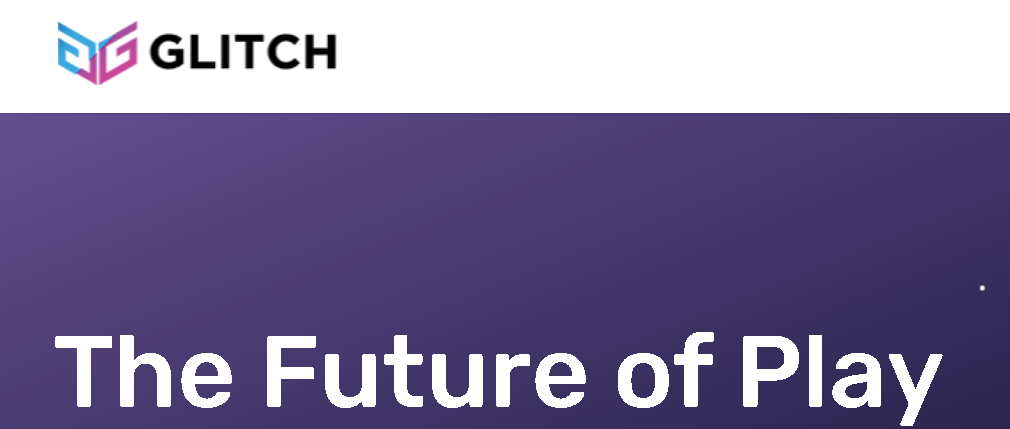
“I kind of realized in the process of doing some interviews that I needed to work in games my own way,” they recalled. “So I needed to figure out what that was, and how to fund it.”
It soon became apparent to Karr that there were two main boxes that needed to be checked in their work. “Throughout my entire journey, it was really clear that there were two things for me: I wanted to connect with people very deeply through play, and I cared a lot about making sure that funding and financing is something that is accessible, people can understand, that people can get access, because there were lots of barriers at the beginning.”
Trying to find innovative solutions to these barriers became the main focus of Karr’s work. Glitch decided to take a more daring approach to how games are made, backing people rather than projects. This started with Tribe Games’ Hyperdot, a minimalist action-arcade game that went on to be very successful. “When we were looking at working with Charles (founder of Tribe Games), we started off initially just like making games, and then we had some proceeds at the end of the year. And we’re like, ‘maybe we just reinvest and back it into something that we believe in and someone that we really believe in.'”
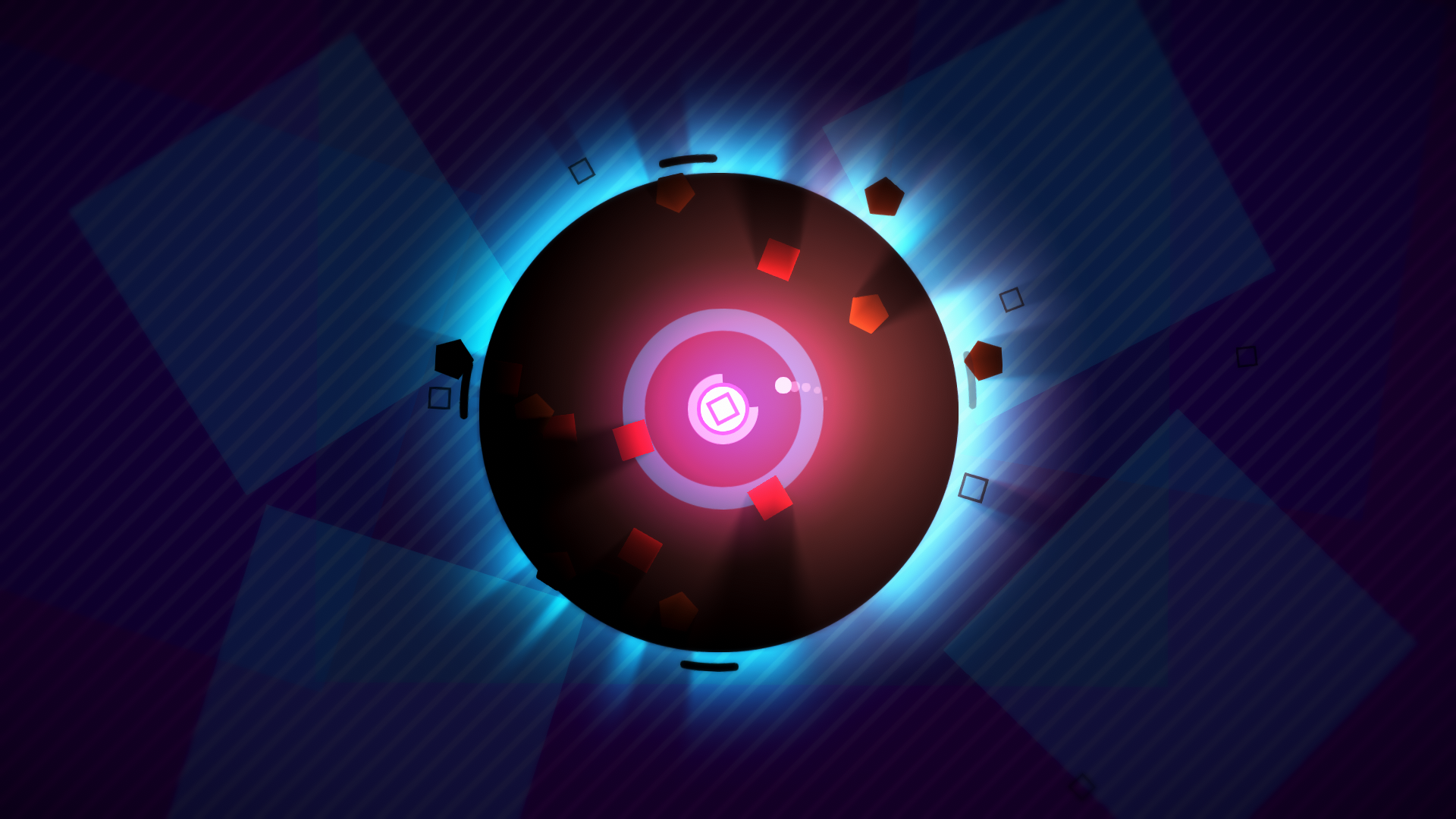
“And they knew, like we both kind of came into this knowing that it was an experiment, and we wanted to see if it was going to work,” Karr said. “And Hyperdot has done really well. And Charles has done really well as well. We have jokingly said, you know, like, he’s now been able to, of course, pay off all his student loans and has some money for his next game, which is a big deal for us.”
Coming out of this experience, and along with speaking to other creators starting their own businesses, Karr came to the realization that funding barriers are a widespread issue for aspiring developers. This realization, coupled with the murder of George Floyd (Glitch is based in Minneapolis) and the frustration surrounding funding in general, especially for games’ early stages, came to a boiling point. Karr created the Galaxy Fund, a crowdfunded grant that creators can apply for to fund their projects.
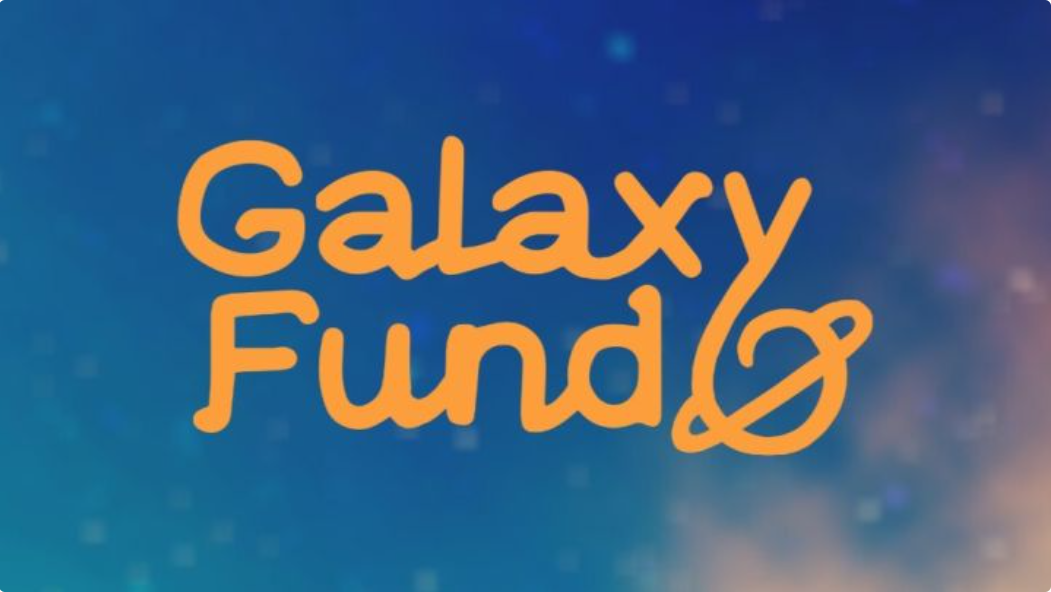
Galaxy is a non-refundable grant made possible by Glitch working with a nonprofit as a fiscally sponsored project. “It’s literally writing a check and saying: ‘go do something cool.'” Karr said. Creators can nominate themselves or others for the fund, and recipients can use their money however they see fit.
Currently, Karr hopes to be able to disperse the grant once or twice a year. The first grant will be going to “a fierce group of five Black women and queer founders,” including Daisy Ein, Latoya Peterson, Catt Small, Jules Porter, and Geneva Hayward. Each will be receiving $10,000 prototype grants “so they can work on an idea.”
“They don’t even have to have a business, they don’t have to have anything, they can just work on an idea,” Karr told Uppercut. ” And from something to nothing. That’s really what that the goal of that grant is.”
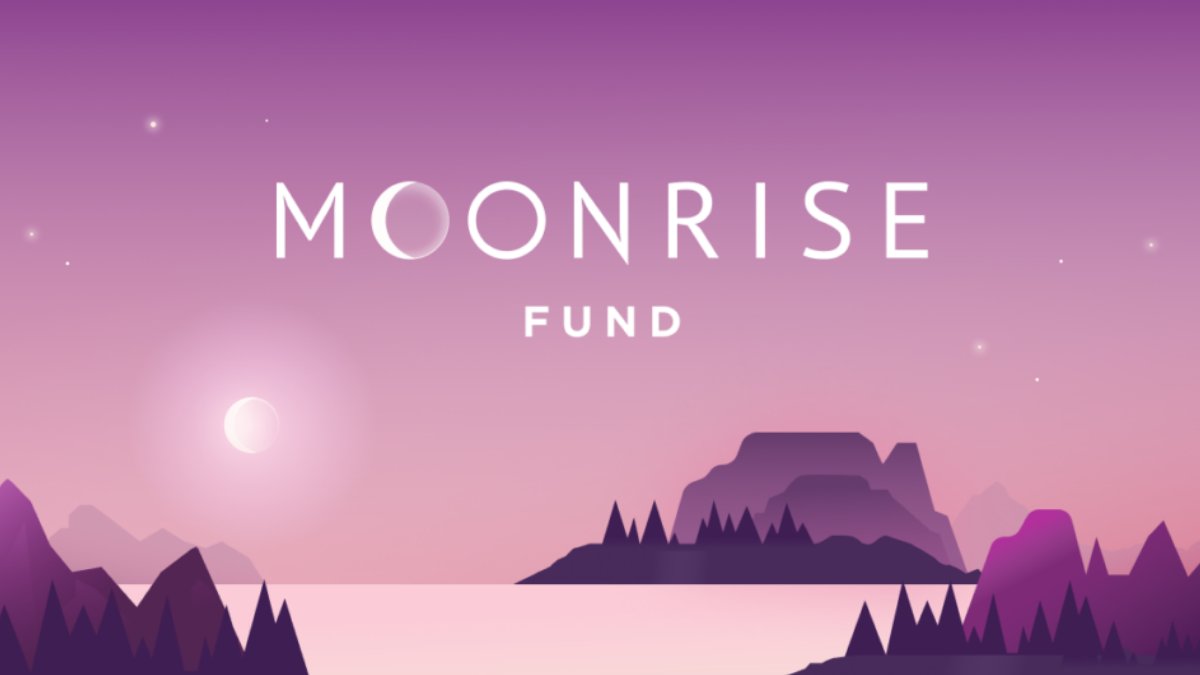
Galaxy isn’t Glitch’s only fund, however. Moonrise Fund is one of Glitch’s other projects, an early-stage equity fund that shares Glitch’s goal of backing people rather than projects. Instead of a grant where Glitch is writing a check for a creator to go work on an idea, Moonrise entails Glitch purchasing shares in a company to become a minority owner.
They aren’t looking for a board seat or direct control over the companies they own stock in however. Rather, according to Karr: “We aren’t looking for any voting rights, we don’t want a board seat, we want literally no control. We just want to be here if folks have questions, and use us if it’s helpful and when it’s helpful.”
That doesn’t mean Glitch won’t be getting something out of the deal. The fund was created to be flexible enough to accommodate what creators define as success, while still including the fund in that success. As Karr explains it, there are two main ways the Moonrise Fund can become a long-term partner with a studio. The first is simply partaking in a company’s dividends when it decides to payout, taking a 12% cut of those profits. Alternatively, if a Moonrise-funded studio decides it wants to be acquired, it can do so, Moonrise would just participate in the acquisition at 12%. There are other, less likely options studios can opt for as well, depending on their specific goals and needs and how those match up with Glitch.
Glitch and its funds also aim to provide support that goes beyond financing. While offering community and structure to the developers and studios they partner with, Karr says they see the advisory list’s role as being more accomplices than mentors.
“It’s like we’re on the ground floor, working on our own stuff, and also showing folks what we’ve been working on,” Karr said. “And I think it’s the same thing for a lot of the other advisors who are also doing the work and sharing what they’ve learned. So to me, it’s not really formal mentorship and like ‘I’m a mentor to you,’ but it’s more of like, ‘Hey, we’re all in this together, we’re doing very similar things.'”
“I don’t think anyone as an advisor wants to be a mentor. I think we want to be accomplices, and be able to shepherd a lot of these teams through some of these really tough early stages, and also share our knowledge widely and openly so that they don’t have to face the similar barriers that we did when we got started.”
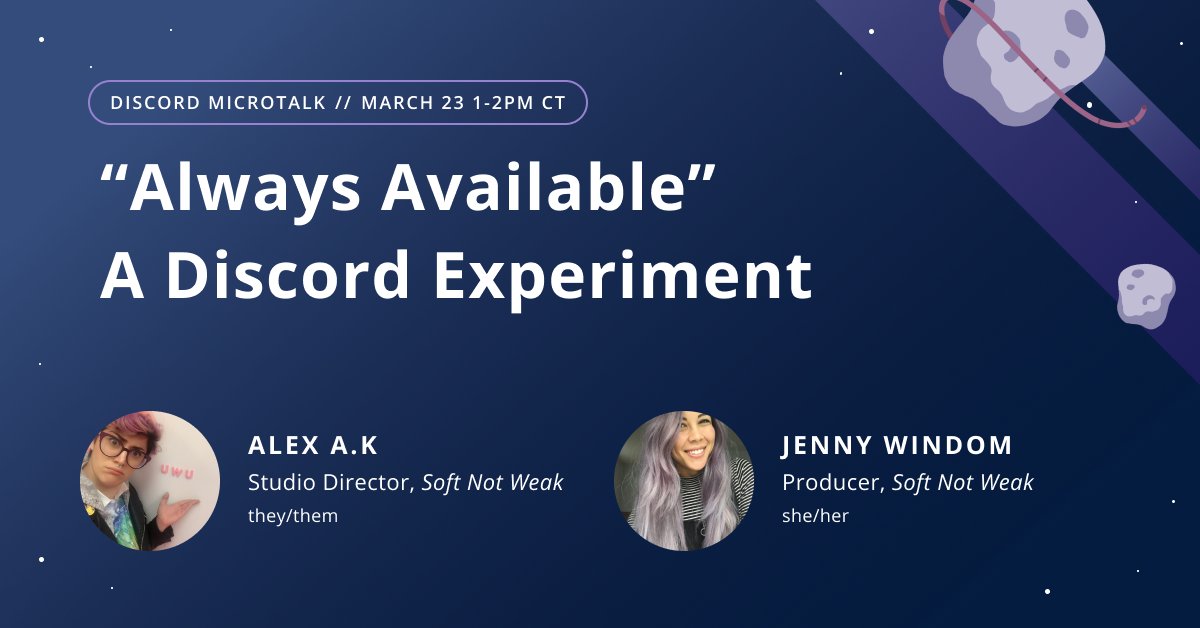
This knowledge exchange and support network won’t be limited to just recipients of the Moonrise Fund, at least not for long. Glitch and Karr have plans in the works for future content to help make what the advisors and devs have learned more accessible to everyone. Some of this content has begun to roll out, with micro-talks from industry professionals being held in the Glitch Discord server.
Moonrise and most of Glitch’s projects are more than a bit experimental, but Karr has designed them with that in mind, knowing the programs can only get more refined with time and feedback. “Slowly but surely, we’re going to get more refined, right? Like, it’s, it’s a living process,” Karr said.
“And I talk about even agreements as living documents, like, we can go back and edit those. If we don’t like them, we can go back in and edit them and talk to our development partners and say, like, ‘hey, this isn’t working. Can we talk about this? Here are our pain points.’ And what if, and we expect that our partners do the same for them? Yeah, like it is truly an ecosystem that is built off of trust. And it is built off of sharing and sharing resources, sharing knowledge, and also understanding. And I believe that is the new way and the best way to do business.”






2 thoughts on “How Evva Karr and Glitch are Looking to Change the Way Games are Made”